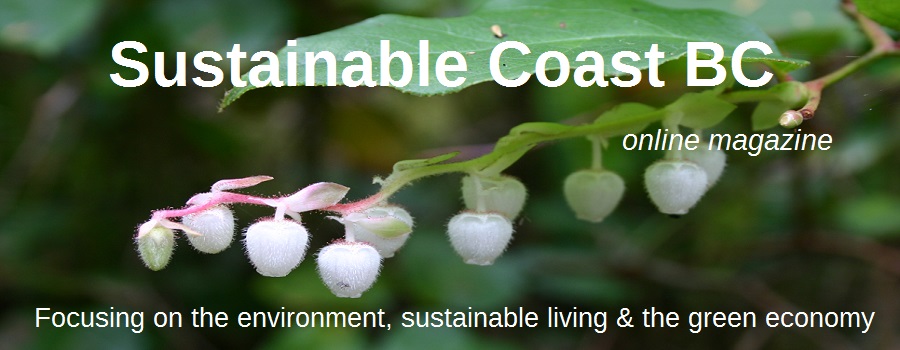Features
- Details
- Written by Beverly Saunders Beverly Saunders
- Category: Actions large and small Actions large and small
- Published: 12 September 2011 12 September 2011
At the recent Lehigh Open House in Sechelt, BC on Saturday, September 10, it was demonstrated that Zero Waste is achievable with a bit of education and "coaching". Working with the EcoSafe Zero Waste team, Lehigh Materials set up a recycle and compost area to serve their Zero Waste lunch.
After serving a menu that included beverges, burgers, hot dogs, salads and desserts for close to 1000 visitors, a diversion rate of 95% was achieved. Around 250 gallons divided into six bins of food and compostables were collected along with three and a half bins of recycling. The waste or garbage collected was only a five gallon bucket.
In organizing the event, EcoSafe worked with Lehigh management to arrange for the purchase of easily identifiable and certified compostable products to be used for the lunch and to plan the setup of a “Striving for Zero Waste” station. The resulting compostables were then delivered to the Salish Soils Inc. composting site nearby.
Salish Soils is a new company on the coast that produces premium composts made primarily with commercial fish and forest waste with some green waste from local landscapers and residents. President Aaron Joe states, "Our vision is to use the compostable waste generated in our communities to produce premium organic soils that can then be used to build a sustainable food supply for the region.”
This year in collaboration with Salish Soils, the Sechelt First Nation and the First National Educational Society, Lehigh provided access to a Research and Education Demonstration Garden project which is located on the mine site. The vision for this project is to support local food production and provide opportunities for new sustainable agriculture businesses on the reclaimed lands.
EcoSafe Zero Waste is a privately owned international marketing company headquartered in Surrey, BC. Their director of marketing, Phil Ragan, is a resident of the Sunshine Coast. "The Lehigh Open House is a good example of how events can be effectively managed to eliminate waste. By controlling what we use and allow to enter the waste stream we eliminate the necessity of dealing with all the contaminants that inhibit recycling and composting," said Ragan. " And the really good news is that these new materials are mostly made with annually renewable natural resources such as starches and plant fibers that support the building of a truly sustainable economy for future generations."
There are plans to work back into the supply chain to achieve similar results in the food preparation area for next year.
For more information : www.ecosafezerowaste.com and Salish Soils Inc. on FB
